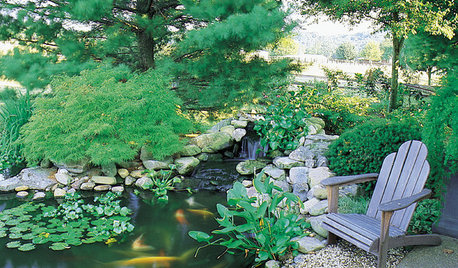using alcohol to extract willow rooting hormone
ilazria
14 years ago
Featured Answer
Sort by:Oldest
Comments (12)
ilazria
13 years agoalbert_135 39.17°N 119.76°W 4695ft.
13 years agoRelated Professionals
Londonderry Landscape Architects & Landscape Designers · Beavercreek Landscape Architects & Landscape Designers · Horsham Landscape Architects & Landscape Designers · Marco Island Landscape Architects & Landscape Designers · Parole Landscape Architects & Landscape Designers · Roxbury Crossing Landscape Architects & Landscape Designers · Aurora Landscape Contractors · Bethel Park Landscape Contractors · Pleasant Hill Landscape Contractors · Pleasant Prairie Landscape Contractors · Porterville Landscape Contractors · Saint George Landscape Contractors · Salmon Creek Landscape Contractors · Crowley Landscape Contractors · Vienna Handymanalbert_135 39.17°N 119.76°W 4695ft.
13 years agonancyanne_2010
13 years agoalbert_135 39.17°N 119.76°W 4695ft.
13 years agotb1992_live_com_au
13 years agoWoebegonia
13 years agoWoebegonia
13 years agotaxonomist
13 years agowillowjuicemaker
10 years agomrunix
10 years ago
Related Stories

GREAT DESIGNERSMeet Shigeru Ban, Winner of the 2014 Pritzker Architecture Prize
This humanitarian’s vision includes inspiring new uses for everyday materials, in relief housing and other structures the world over
Full Story
EDIBLE GARDENSSummer Crops: How to Grow Tomatoes
Plant tomato seedlings in spring for one of the best tastes of summer, fresh from your backyard
Full Story
HOUSEPLANTSBaby Tears Mimics Moss for a Green Accent Indoors
This adaptable spreader thrives in water or soil, making it a terrific addition to containers and living walls
Full Story
HEALTHY HOMEDetox Your Kitchen for the Healthiest Cooking
Maybe you buy organic or even grow your own. But if your kitchen is toxic, you're only halfway to healthy
Full Story
EARTH DAYThe Case for Losing the Traditional Lawn
Work less, help the environment and foster connections by just saying no to typical turf
Full Story
GARDENING AND LANDSCAPING4 Good Ways to Get Rid of Mosquitos in Your Yard
Stay safe from West Nile virus and put an end to irksome itches with these tools and methods for a porch, patio or yard
Full Story
HOUSEPLANTSHow to Force Amaryllis Bulbs Indoors
Enjoy vibrant red blossoms even as gardens turn snowy white, by teaching this hardy repeat performer to ignore the calendar
Full Story
GARDENING AND LANDSCAPINGHow to Make a Pond
You can make an outdoor fish paradise of your own, for less than you might think. But you'll need this expert design wisdom
Full Story
MOST POPULAR7 Ways to Design Your Kitchen to Help You Lose Weight
In his new book, Slim by Design, eating-behavior expert Brian Wansink shows us how to get our kitchens working better
Full Story
GARDENING GUIDESGreat Design Plant: Grow Blueberries for Their Fruit and More
Eastern gardeners should consider growing blueberry plants for their delicious fruits, bee-friendly spring blooms and brilliant fall foliage
Full Story





Suzi AKA DesertDance So CA Zone 9b